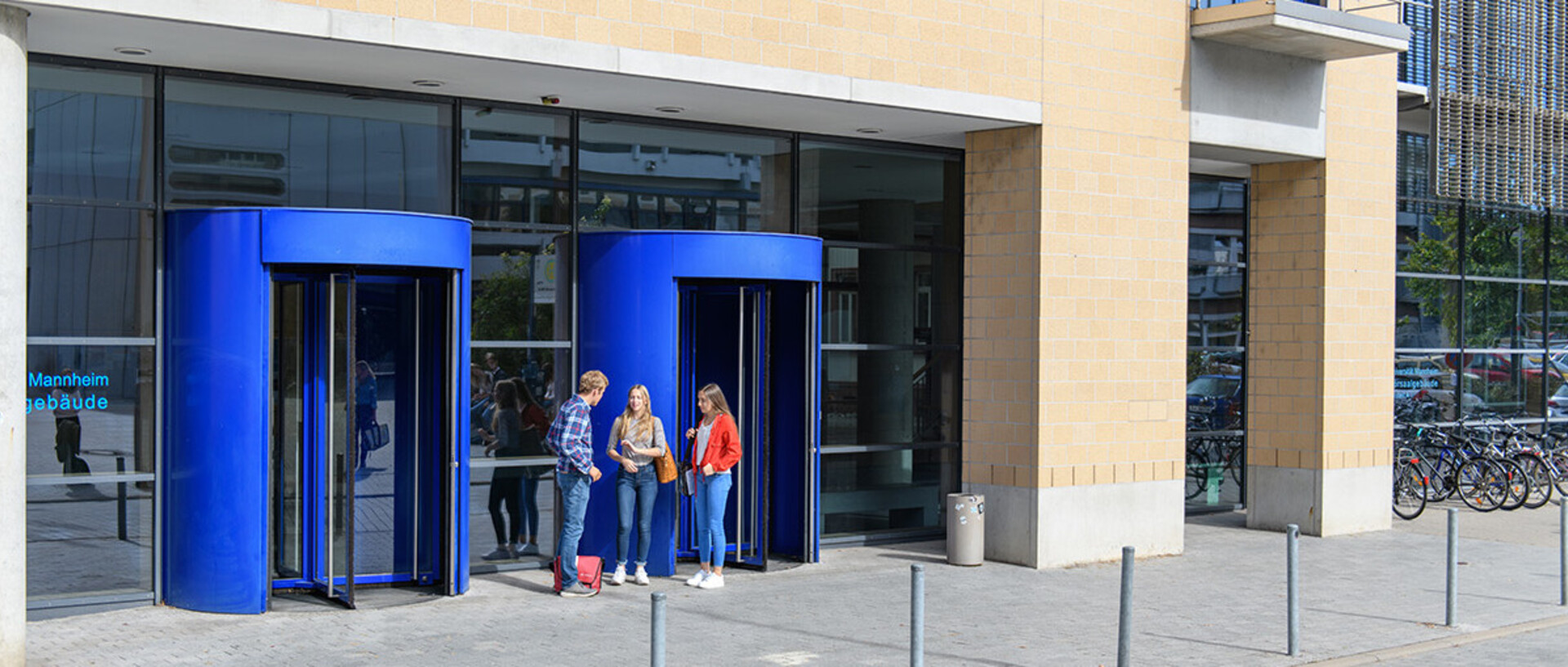Completed Projects
Teaming.AI

TEAMING.AI will develop a software platform for human-AI teaming. The main developed technologies are dedicated to the Knowledge Graph Engine, the TEAMING.AI Engine and mechanisms for exploiting the underlying knowledge graph for constraint checking and mining for recommendations, in a dynamic setting. The conceptualisation of human-AI teaming by means of a knowledge graph for modelling teaming interdependencies, skills, tasks and workflows is at the heart of the project, complemented by rule-based techniques for checking consistency and more advanced relational machine learning techniques for on-going evaluation.
Project duration: 2021–2024
Funded by: European Commission
Academic Partners: TU Dublin, WU Vienna, IDEKO, Profactor, Software Competence Center Hagenberg
Kartellrechtskonforme KI (KarekoKI)
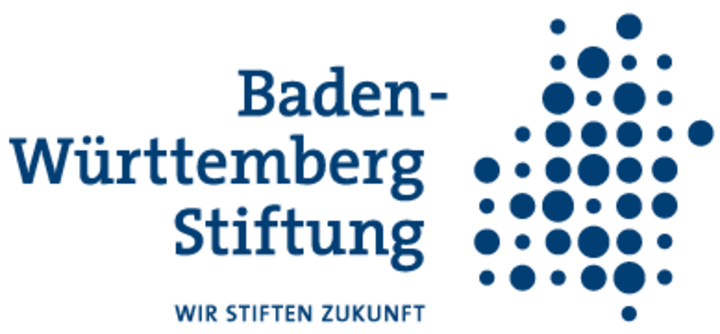
Within the context of the research program for the public welfare-oriented use of artificial intelligence (AI), the project “Kartellrechtskonforme KI (KarekoKI)” (~competition law-compliant AI) is being implemented as a collaborative effort between the Chair of Public Law, Regulatory Law and Tax Law as well as the Chair of Data Sciene. With the help of a market simulation, which is supported by AI-controlled agents as well as data gained from online shops, a legal framework and strategies for the technical prevention of AI-based price fixing are to be developed.
Project duration: 2020- 2023
Overall budget: 383.000 EUR
Funded by: BW Stiftung
Responsible News Recommender Systems (ReNewRS)

Within the context of the research program for responsible artificial intelligence, the goal of the interdisciplinary ReNewRS project is to investigate the effects of news recommender systems on social polarization processes, political participation and prosocial behaviour, in a series of experimental studies. From the resulting empirical insights, guidelines for news recommender systems that enable a more balanced opinion formation will be derived.
Project duration: 2020- 2022
Funded by: BW Stiftung
Partners: Institute for Media and Communication Studies (University of Mannheim), FIZ Karlsruhe, KIT Karlsruhe
Data Search for Data Mining (DS4DM)

As more and more data is available on Web or in the corporate intranets, it is getting increasingly difficult for analysts to find all relevant data for a mining project. The Data Search for Data Mining (DS4DM) project will help anlaysts to find and integrate relevant data by extending the Rapdiminer data mining plattform with data search and data integration features.
Project duration: 2015 – 2018
Overall budget: 400.000 EUR (budget Mannheim: 200.000 EUR)
Funded by: Federal Ministry of Education and Research (BMBF)
Industry partner: Rapidminer GmbH
Identifying Semantic Relations between Models at Different Levels of Granularity
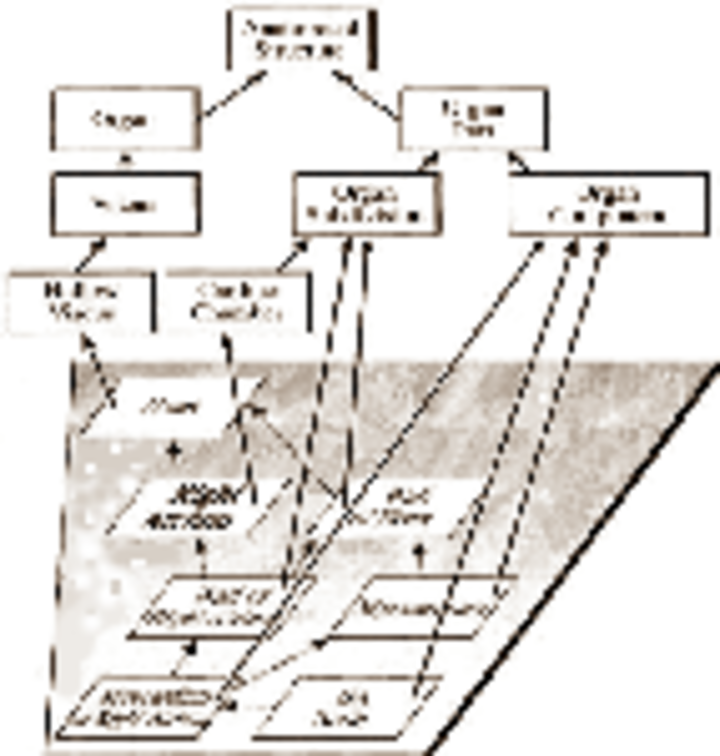
Matching dynamic and static models (business processes or ontologies) has been a vivid research topic over the last decade. Most approaches assume that the models that need to be matched share a similar level of granularity. However, this assumption is often not valid and thus is is required to match, for example, a chain of several activities from a source model to one activity in the target model. Within this project we will develop and evaluate methods that are in particular applicable to such scenarios.
Project duration: 2014 – 2016
Overall budget: 270.000 EUR
Funded by: Deutsche Forschungsgemeinschaft (DFG)
SyKo²W² (Synthesis of Completion and Correction for Web Knowledge Graphs)
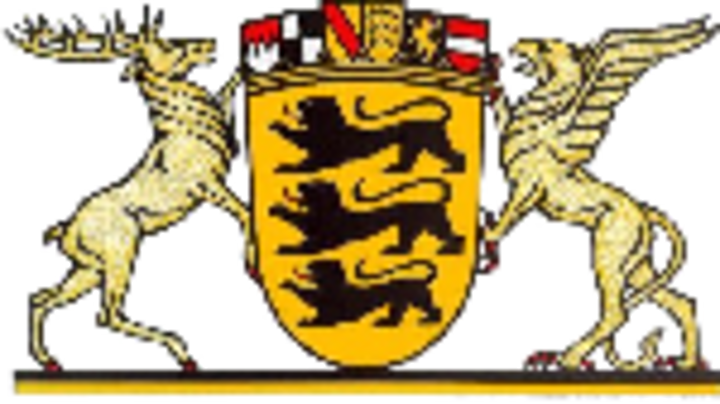
The project will examine how completion and correction methods for knowledge graphs (both of which have been extensively studied in isolation) can be combined into efficient joint methods. For more details please refer to the project page.
Project duration: 2015 – 2017
Overall budget: 150.000 EUR
Funded by: MWK Baden Württemberg
InFoLiS 2 – Integration of research data and literature in the Social Sciences

The InFoLiS follow-up project focuses on the identification of references to research data in publications in different languages and domains. To generate and provide the references, a sustainable LOD-infrastructure will be built.
Duration: 2014–2016
Funded by: Deutsche Forschungsgemeinschaft (DFG)
Project partners:Leibniz Institute for Social Science (GESIS), Mannheim University Library
Mine@LOD – Data Mining with Linked Open Data (DFG)
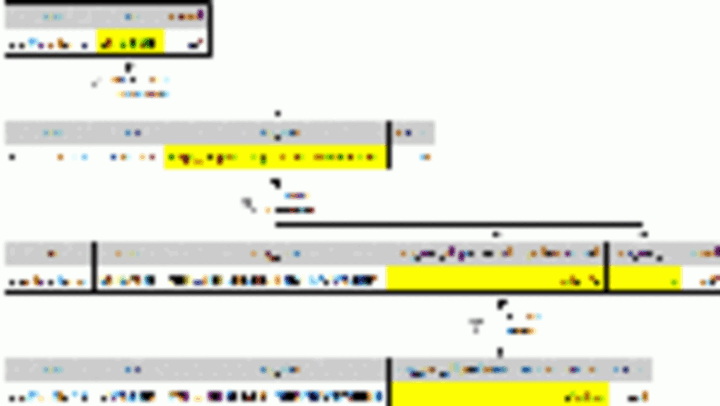
Many data mining problems can be solved better if more background knowledge is available. The Mine@LOD project aims at developing means to add background knowledge from Linked Open Data to a given data mining problem in a fully automated fashion.
Project duration: 2013 – 2016
Overall budget: 264.000 EUR
Funded by: Deutsche Forschungsgemeinschaft (DFG)
Demand Forecasting in the Retail Industry
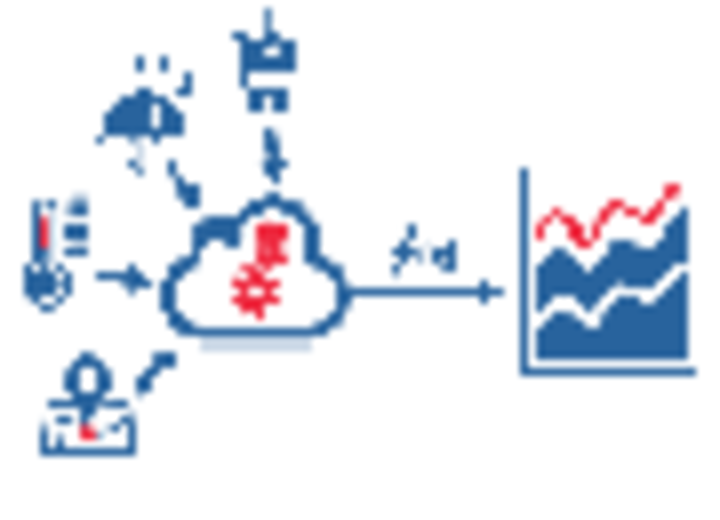
The project is concerned with data mining on time series data of fast moving customer goods (e.g. vegetables, baked goods). In particular, we focus on demand forecasting at different aggregation levels (e.g. intra-day, daily). Therefore, we investigate methods that also enable the integration of external factors that influence the demand (e.g. weather, public holidays).
Duration: 2015 – 2016
Funded by:BMWE EXIST – Existenzgründungen aus der Wissenschaft
Project partner:OPAL – Operational Analytics GmbH
A New Part-time Master Program in Data Science

In this project, we prepare a new part-time study program, the Master of Data Science (M.Sc. Data Science). This study program will be offered by the HS Albstadt-Sigmaringen in collaboration with the Data and Web Science Group at the Uni Mannheim und the University of Tübingen.
The new Master program addresses the growing need for Data Scientist in industry. Offered as part-time program, it is thus well-suited for students that already have some years of practical industry experience and want to go back to university-level education, while continuing to work in their jobs.
The program starts with the 2015 fall semester (WiSe 2015/
http://datascience.hs-albsig.de
Duration: 2014 – 2016
Overall budget: 600.000 EUR
Funded by: MWK Baden Württemberg
Project partner: HS Albstadt-Sigmaringen and University of Tübingen, Germany
Distributed Inference in Probabilistic Knowledge Base
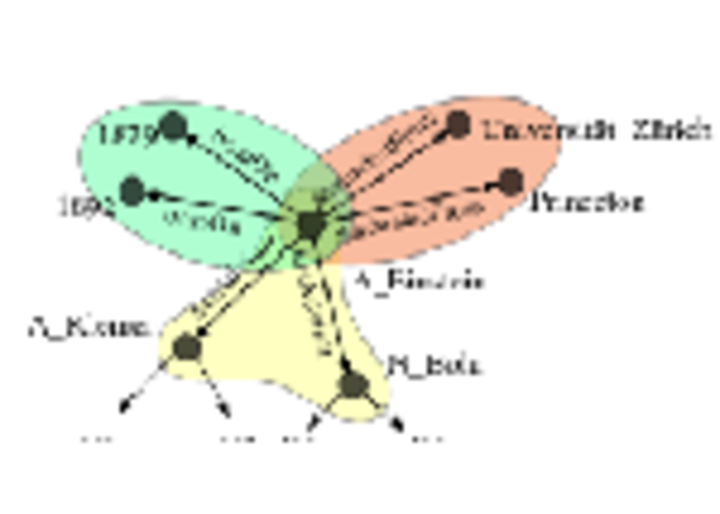
Most of the current information extraction systems, therefore, provide a degree of condence associated with each extracted statement. The higher this numerical value the more likely is it a-priori that the statement is indeed correct. While probabilistic knowledge bases provide a natural representational framework for this type of problem, probabilistic inference poses a computationally challenging problem. As part of the proposed project, we want to distribute a sampling-based inference algorithm whose input is (a) a large set of statements with confidence values and (b) existing background knowledge, and whose output is a set of statements with a-posteriori probabilities. We propose the development and implementation of a distributed inference algorithm that has two separate processes running on the Hadoop platform. The first process constructs hypergraphs modeling the statements and their conflicts given known background knowledge. The second process runs Markov chains that sample consistent sets of statements from the conflict hypergraph ultimately computing the a-posteriori probabilities of all extracted statements.
Duration: 2012 – 2015
Overall budget: 60.000$
Funded by:Google Faculty Research Award
Project partner: University of Washington, Seattle
Vision and language understanding beyond literal meaning
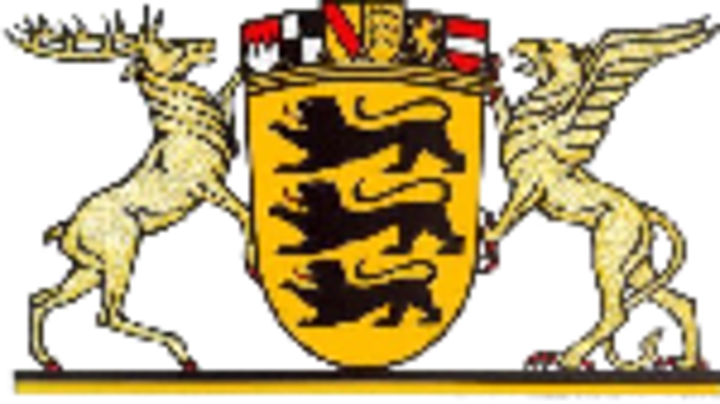
In this RiSC-funded project we investigate computational methods to understand language and image usages beyond literal meaning, namely iconic images and metaphors in context. To this end we collaborate with colleagues from the field of communication science to elaborate sound theories complementary to our models.
Project duration: 2015 – 2016
Overall budget: 64.400 EUR
Funded by: MWK Baden Württemberg
GOLD – Generating Ontologies from Linked Data
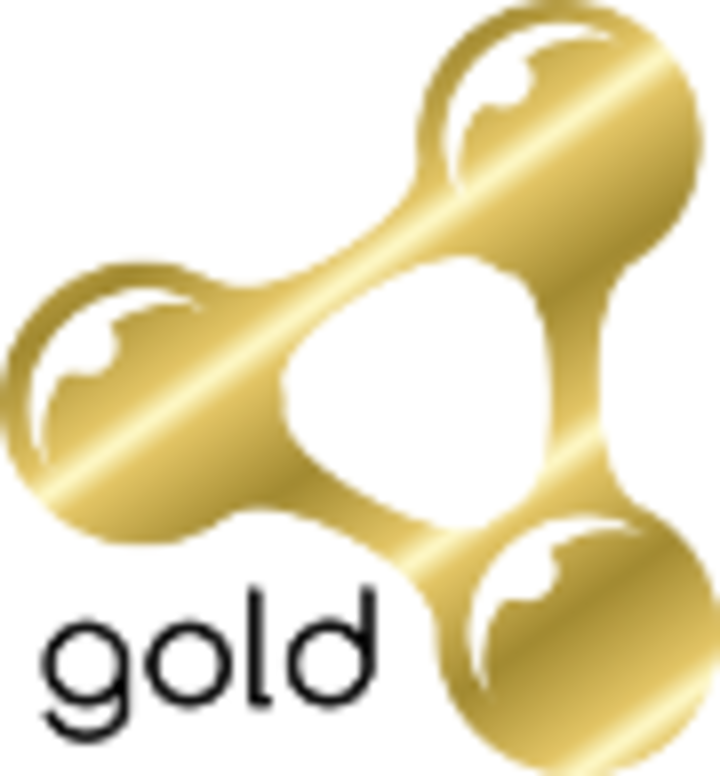
In this project, we will develop new methods for the acquisition of structured knowledge representations which leverage existing contents on the Web of data. By applying logical and statistical relational learning to the vast amounts of linked data while reusing manually engineered formal ontologies whenever possible we hope to provide means for bootstrapping the realization of the semantic web. A major contribution of the project will be the development of novel, integrated learning approaches, which can handle the particular requirements of Linked Open Data in terms of scalability and robustness. Experiments will demonstrate the efficiency and effectiveness of our methods when it comes to different domains and application scenarios the most central one being the task of automatic ontology engineering support and debugging of knowledge bases.
Duration: 2013 – 2015
Overall budget: 218.400 EUR, for our group: 109.200 EUR
Funded by: German Research Foundation (DFG)
Project partner: University of Leipzig, Germany
Deep semantic models for high-end NLP applications

In this project we look at new ways of complementing ontological information from general-purpose knowledge graphs with distributional information, in order to enable deep understanding of text in complex NLP applications such as summarization and text re-use.
Project duration: 2015 – 2017
Overall budget: 180.000 EUR
Funded by: MWK Baden Württemberg
Pick-By-Vision – Enhancing the Picking Process in the After-Sales-Logistic
In cooperation with the Daimler AG the project develops an exemplary pick-by-vision prototype. On hardware-level the prototype works with an AR-data-glass from Vuzix Corporation, on algorithmic-level methodologies from computer vision and augmented reality are applied to assist navigating, working on orderlists, and enabling the connection to an active picker. Furthermore, direct feedback enhances the system to avoid wrong picked items.
Duration: 2014–2015
Project partners: Daimler AG, GLC Germersheim
LOD2 – Creating Knowledge out of Interlinked Data
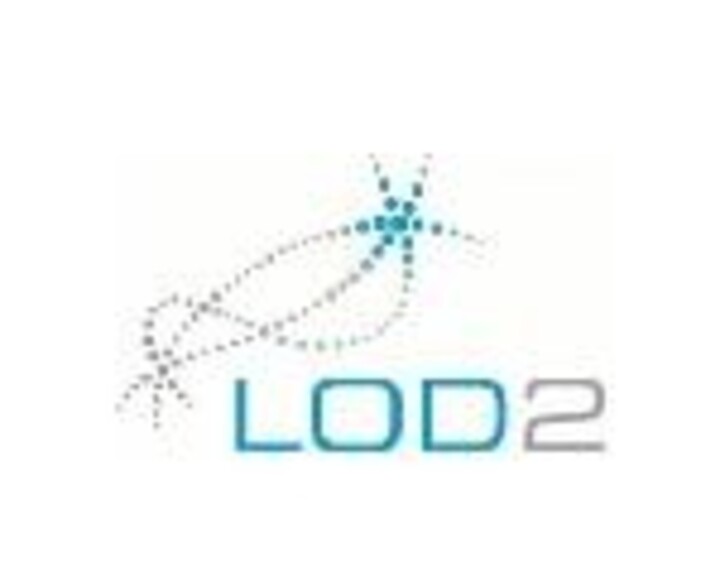
The LOD2 project develops tools and methodologies for exposing and managing large amounts of structured data on the Web. The methodologies and tools are applied in e-government, media and enterprise search use cases. Within the project, we research methods for interlinking and fusing Web data as well as for assessing the quality of Web data. More information about the project is found on the LOD2 website.
Duration: 2010–2014
Overall budget: 7 million €, budget Mannheim: 570,000 €
Funded by: European Commission, FP7-ICT-2009-5 (IP Project)
Project partners: Universität Leipzig (Germany), CWI (Netherlands), DERI (Ireland), OpenLink Software (UK), Semantic Web Company (Austria), Exalead (France), Wolters Kluwer (Germany), Open Knowledge Foundation (UK)
DM2E –Digitized Manuscripts to Europeana
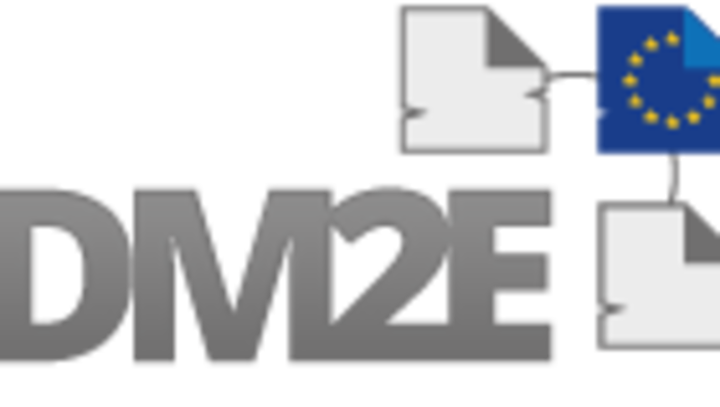
This EU- ICT-PSP project applies the Linked Data principles to data about cultural heritage artefacts and builds a rich, interconnected data space around the digital library Europeana. Within the project, we develop an interoperability infrastructure for converting library metadata from a diverse range of source formats into the Europeana Data Model (EDM). More information about the project is found on the DM2E website.
Duration: 2012–2015
Overall budget: 2,5 million €, budget Mannheim: 280,000 €
Funded by: European Commission, CIP-ICT-PSP-BPN (Support Programme)
Project partners: Humboldt-Universität zu Berlin (Germany), Österreichische Nationalbibliothek (Austria), National Technical University of Athens (Greece), ExLibris (Germany) , Stiftung Preussischer Kulturbesitz (Germany)
PlanetData
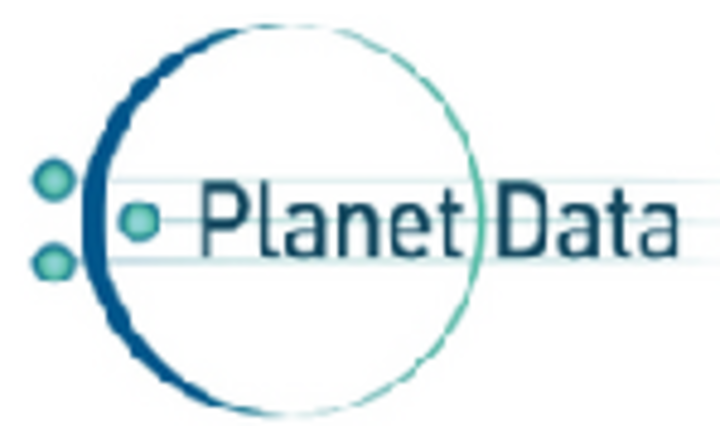
The Network of Excellence PlanetData establishes a European community of researchers around the topic of large-scale data management. Within the project, we research methods for the self-descriptive publication of data as well as for data quality assessment. More information about the project is found on the PlanetData website.
Duration: 2010–2014
Overall budget: 2 million €, budget Mannheim: 160,000 €
Funded by: European Commission, FP7-ICT-2009-5 (Network of Excellence)
Project partners: Universität Innsbruck (Austria), CWI (Holland), Institut Jozef Stefan (Slovenia), Karlsruher Institut für Technologie (Germany), Universidad Politecnica de Madrid (Spain)
Linking and Populating the Digital Humanities (DFG/NEH)

This project is a cooperation with the Indiana University, Bloomington. We plan to develop an application which is able to connect and enrich data from the humanity area with data from the sematic web (Keyword: Linked Data). The goal is to build an application which can easily be used by non-technical people. In this project we work with the Encyclopedia of Philosophy as a test case and plan to apply our application within the InPho project.
Duration: 2012 – 2014
Overall budget: 200.000 EUR, for our group: 120.000 EUR
Funded by: Funding from the NEH/
Project partner: Indiana Universiy, Bloomington, USA
Linguistic Aspects of Symbolic Knowledge Representation
This project funded by a Margarete-von-Wrangell habilitation scholarship is concerned with the development of logical and statistical methods for extracting, debugging, integrating and querying Semantic Web data.
Duration: 2009–2014
Budget: 360.000 EUR
Funded by: MWK Baden-Württemberg im Rahmen des Europäischen Sozialfonds
Development of a risk management tool for complex technical systems

For many companies the successful execution of business processes increasingly depends on a reliable IT infrastructure. Outages in a datacenter cause high costs.
The project's aim is to develop a control unit which autonomously detects critical conditions in important services and initiates counter measures to ensure a stable infrastructure. Therefore, informations about the system configuration from a configuration management database and live data from running systems needs to be merged in the control unit. Additionally, dependencies between system components have to be modeled individually for each datacenter and provided to the control unit.
Duration: 2013 – 2015
Overall budget: 175.000€
Funded by: German Federal Ministry of Economics and Technology (BMWI), Program SME (Zentrales Innovationsprogramm Mittelstand – ZIM)
Project partner: Softplant GmbH, Munich
Polytos – Develop smart labels based on organic electronics
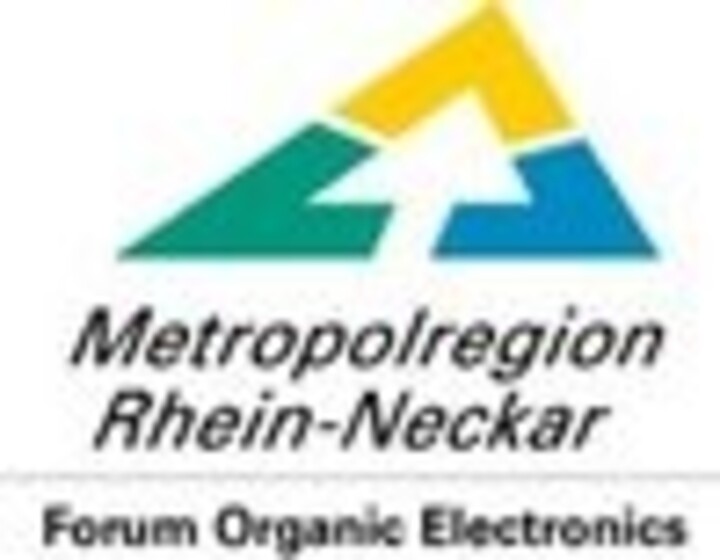
The project is being sponsored by the German Federal Ministry of Education and Research (BMBF). Its aim is to develop new materials, concepts, components, manufacturing processes and software for printed organic circuits with integrated sensors capable of recording data such as temperature, humidity or light exposure for applications in the packaging industry. These systems could some day be used as printed smart labels, namely intelligent and flexible transponders that are applied to a film together with their antenna and can transmit information.
Within this project, and in cooperation with SAP and the University of Karlsruhe, we are implementing a scalable infrastructure to process the data acquired from Smart labels.
Duration: 2009 – 2013
Budget: 40.000.000 EUR Whole project of which 300.000 Part project LsKi
Funded by: SAP AG, Sub-contract as part of the Leading-Edge Cluster Forum Organic Electronics
ProMap – Probabilistic Mappings for the Semantic Web (DFG)

This project tackles the problem of having one query that should be answered by different knowledge resources within the context of the Semantic Web. We assume that these knowledge resources are described by ontologies that have to be integrated by linking them via mapping rules. However, many of these mapping rules mustl be created automatically and are only correct up to a certain probability. Answering queries, thus, has to take into account these uncertainties and probabilities.
Duration: 2009 – 2012
Budget: ca. 260.000 EUR
Funded by: DFG
Emmy Noether Programme – DFG
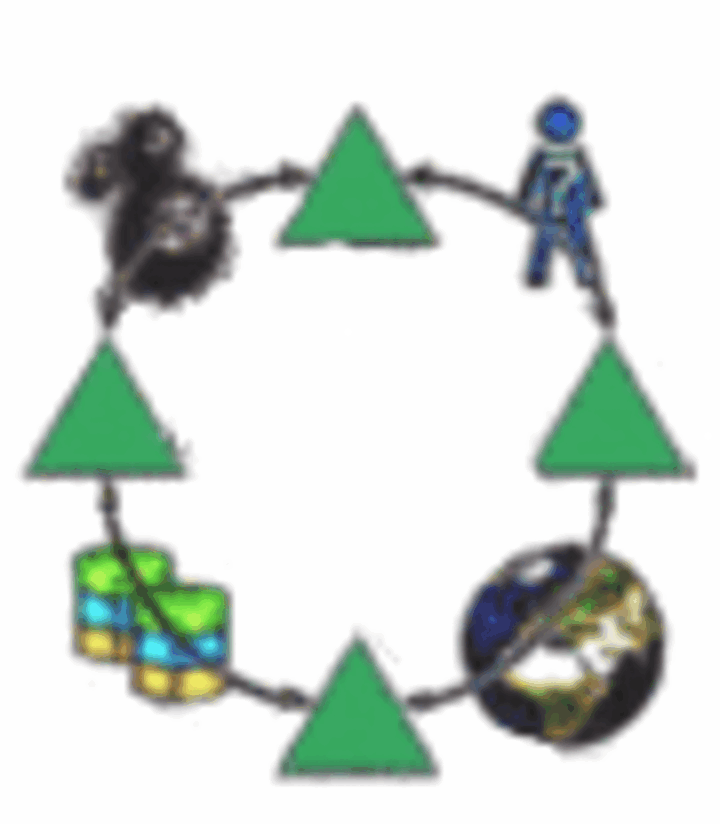
Complex and distributed application areas are often based on local system architecture and a divided knowledge model. Knowledge based management and storage of information within such a setting is the topic of this project.
Durration: 2006 – 2012
Budget: 700.000 EUR
Funded by: Partial funding of a junior research group by the DFG
InFoLis: Integration von Forschungsdaten und Literatur in den Sozialwissenschaften

Many applications exist that can be used to search for literature that is relevant for a certain topic. In contrast to this, searching for studies, surveys and datasets is only supported to a very limited degree. The InFoLiS project tries to solve this problem by providing an integrated search algorithm that searches for studies and literature from the field of social science in parallel. This project in conducted in close cooperation with the Mannheim University Library and the GESIS (Leibniz Institute for Social Science).
Duration: 2011 – 2013
Overall budget: 300.000 EUR, budget for our group: 75.000 EUR
Funded by: DFG (Projekt für wissenschaftliche Informationsversorgung)
Project Partners: Leibniz Institut for Social Science (GESIS), University Library Mannheim
MappingAssistant – An intelligent tool for interactive diagnosis and correction of data integration rules
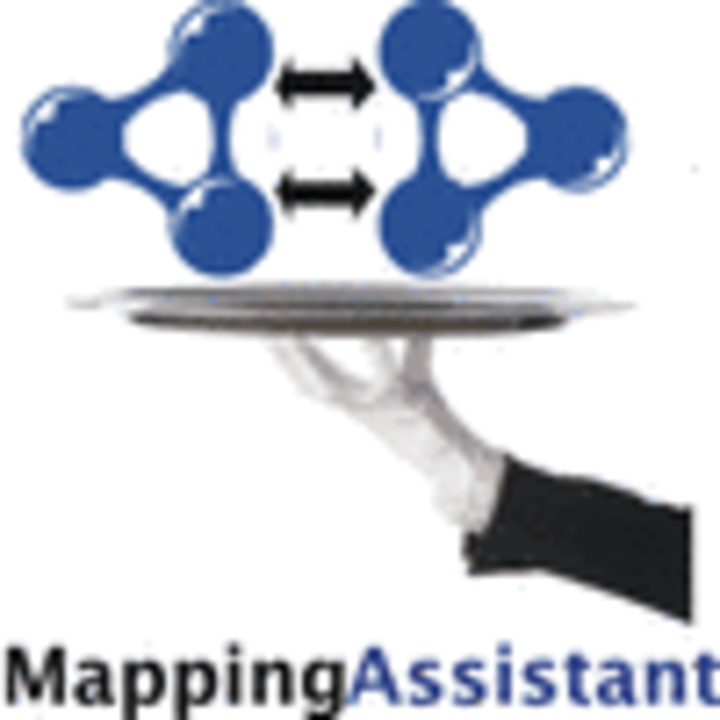
In data integration tasks algorithms produce data integration rules. These created target ontology and the corresponding mapping-rules might be error-prone. Hence, we developed the conflict resolution framework MappingAssistant which detects and corrects wrong rules with the help of instances. The user-centric and interactive design allows especially non-technical users to perform data integration tasks.
Duration: 2010 – 2012
Budget: overall 500.000 EUR, 170.000 EUR for our group
Partner: financed by BMBF within the KMU Innovative program
SEALS: Semantic Evaluation at Large Scale (EU FP7)

Within the SEALS project a platform for running evaluations and evaluation campaigns for Semantic Web tools (reasoner, matching tools, ontology editors, ...) has been developed. 10 partners from 6 european countries have participated in this project. Our contribution in the project was related to the Ontology Alignment Evaluation Innitiative, an annual campaign that aims at evaluating Ontology Matching tools against dataset from different domains.
Duration: 2009 – 2012
Budget: overall 3.500.000 EUR, 150.000 EUR for our group
Partner: International group of universities, funden by the European Union
Robust and Scalable Reasoning for Information Extraction

This project deals with extraction of information from unstructured/
Duration: 2009 – 2011
Budget: about 100.000 EUR
Partners: Research Seed capital des Ministerium für Wissenschaft, Forschung und Kunst
Enhencing the accessability for large text collections using semantic web technologies

This project aims for an automatic subject cataloguing for documents in economics. It employes the promissing methodes of fixed subject vocabulary, adjusted to the economics domain.
Duration: 2007 – 2009
Budget: ca. 170.000 EUR
Sponsor: Deutsche Forschungsgemeinschaft
Partner: Universitätsbibliothek Mannheim, SyynX Solutions GmbH
